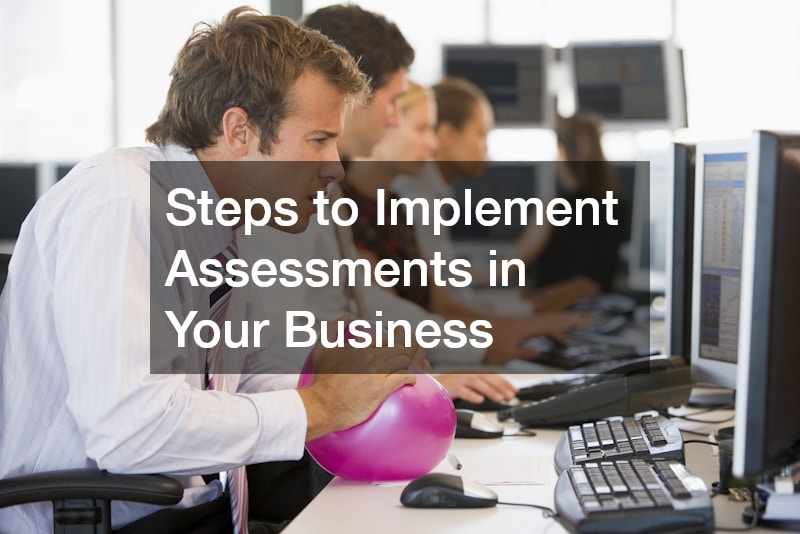Starting a business involves making critical decisions, and one of the most important is building a team that drives success. Evaluating candidates based solely on resumes and interviews can often miss key aspects of their potential. This is where structured assessments come in, providing insights into personality traits, problem-solving abilities, and work preferences.
For new business owners, understanding and using these tools can significantly enhance hiring decisions, improve team dynamics, and foster long-term growth. This guide explores how such evaluations work and their benefits in helping entrepreneurs build high-performing teams.
What Are Psychometric Assessments?
Psychometric assessments are tools designed to evaluate various psychological traits, such as cognitive ability, personality characteristics, and behavioral tendencies. These tests are standardized, ensuring consistent and objective results, which can be used to predict how individuals might perform in specific roles or contribute to team dynamics.
By focusing on traits beyond technical skills, these assessments provide business owners with a more comprehensive understanding of a person’s suitability for a role. This deeper insight can lead to better hiring decisions, stronger team cohesion, and reduced employee turnover.
The Mechanics of Psychometric Assessments
These assessments are built on scientific principles, with a focus on reliability and validity. Here’s how they typically function:
1. Development and Design
Every assessment is tailored to measure specific traits or skills. Developers rely on established psychological theories, such as the Big Five Personality Traits or emotional intelligence models, to craft test items that accurately reflect the traits being measured.
2. Types of Assessments
There are two main categories:
- Cognitive Ability Assessments: Measure skills such as numerical reasoning, logical thinking, and verbal comprehension. These are particularly useful for evaluating problem-solving potential.
- Personality and Behavioral Assessments: Examine traits like emotional stability, adaptability, and teamwork orientation, helping to identify how individuals might fit into an organizational culture.
3. Results Interpretation
Results are presented in a standardized format, often including percentile rankings, trait descriptions, and practical recommendations. These reports are designed to help employers understand the test-taker’s strengths, weaknesses, and overall fit for the role.
Why Should New Business Owners Use These Assessments?

When launching a business, every hire is crucial. Selecting individuals who align with your company’s values and goals can set the foundation for success. Incorporating structured evaluations into your hiring process offers several advantages:
1. Improved Hiring Accuracy
Traditional interviews and resumes focus on past accomplishments, but they can’t always predict future performance. Assessments reveal how candidates approach challenges, handle pressure, and interact with others, ensuring you hire based on both skills and personality fit.
2. Building a Cohesive Team
Understanding how employees’ personalities and work styles align with one another helps create a balanced team. For instance, pairing detail-oriented individuals with creative thinkers ensures both structure and innovation within your organization.
3. Supporting Growth and Development
These tools aren’t just for hiring; they’re invaluable for ongoing development. Once your team is in place, psychometric testing can guide training initiatives, leadership development, and conflict resolution, ensuring your team continues to grow alongside your business.
4. Reducing Turnover
By matching candidates to roles that align with their natural abilities and preferences, you increase job satisfaction and engagement. Happier employees are less likely to leave, reducing the costs associated with high turnover rates.
Applications in Business Settings
Structured evaluations can be used at various stages of the employee lifecycle. Here’s how they can support your business operations:
1. Recruitment
During the hiring process, psychometric testing provide objective data about candidates. By combining this information with resumes and interviews, you can make more informed decisions about who to bring on board.
2. Team Building
Once your team is assembled, assessments help you understand how individuals interact. Knowing who thrives in collaborative environments versus independent roles can help you assign responsibilities effectively.
3. Leadership Identification
As your business grows, you’ll need leaders who can guide your team. Evaluations can identify traits like decision-making skills, emotional intelligence, and resilience, helping you choose employees to nurture for leadership roles.
4. Performance Management
Evaluations provide a framework for constructive feedback. By identifying strengths and areas for improvement, you can create development plans tailored to each employee, fostering continuous improvement.
5. Conflict Resolution
Misunderstandings and interpersonal conflicts can arise in any workplace. These tools help uncover the root causes of tension and provide strategies to resolve issues, promoting a more harmonious work environment.
Challenges and Considerations
While the benefits of psychometric testing are clear, it’s important for new business owners to approach their use thoughtfully. Here are some considerations:
1. Selecting the Right Tools
Not all assessments are created equal. Look for tools that are scientifically validated and relevant to the roles you’re hiring for. For example, a startup focused on innovation might prioritize creativity and adaptability, while a finance firm might value precision and analytical thinking.
2. Avoiding Overreliance
While assessments provide valuable insights, they should not be the sole factor in hiring or management decisions. Combining results with other evaluation methods ensures a well-rounded understanding of each candidate.
3. Ensuring Fairness
Cultural and linguistic differences can influence how individuals respond to certain tests. Choose assessments that are inclusive and minimize bias, ensuring fair evaluations for all candidates.
4. Maintaining Confidentiality
Psychological data is sensitive and should be handled with care. Ensure that results are shared only with relevant decision-makers and stored securely to protect employee privacy.
Steps to Implement Assessments in Your Business

If you’re ready to incorporate these tools into your operations, follow these steps:
1. Define Your Objectives
Determine what you hope to achieve by using psychometric testing. Are you looking to improve hiring accuracy, identify leadership potential, or resolve team conflicts? Clear goals will guide your choice of tools.
2. Choose the Right Provider
Research providers that specialize in assessments tailored to your industry and business needs. Look for options with strong reviews, robust validation processes, and user-friendly reporting.
3. Integrate With Hiring Practices
Incorporate assessments into your recruitment workflow. For example, you might administer a cognitive test during the initial application process and a personality assessment after the first interview.
4. Train Your Team
Ensure that hiring managers and team leaders understand how to interpret results and use them effectively. Training sessions or guidance from the assessment provider can be helpful.
5. Monitor and Adjust
As you gain experience with these tools, evaluate their impact on your hiring and management outcomes. Adjust your approach as needed to maximize benefits.
The Long-Term Benefits for Your Business
For new business owners, adopting structured evaluations is an investment in the future. These tools help build a strong foundation by ensuring that every hire contributes to your organization’s success. Over time, they foster a workplace culture of understanding, collaboration, and continuous growth.
By leveraging these insights, you’ll be better equipped to navigate the challenges of entrepreneurship, build a high-performing team, and position your business for long-term success.
Structured assessments offer new business owners a valuable resource for understanding their employees’ abilities, traits, and potential. By providing objective insights, they help entrepreneurs make smarter hiring decisions, foster effective teamwork, and support employee development.
While implementing these tools requires thoughtfulness and care, the benefits they bring to your business far outweigh the effort. As your organization grows, the insights gained from these evaluations will continue to guide your decisions, ensuring that your team remains a key driver of your success.







